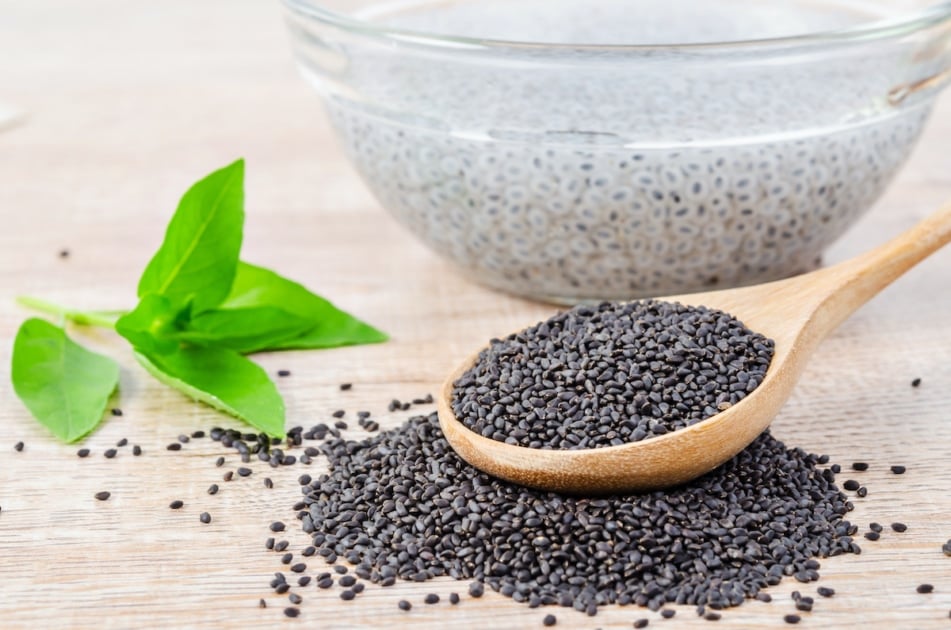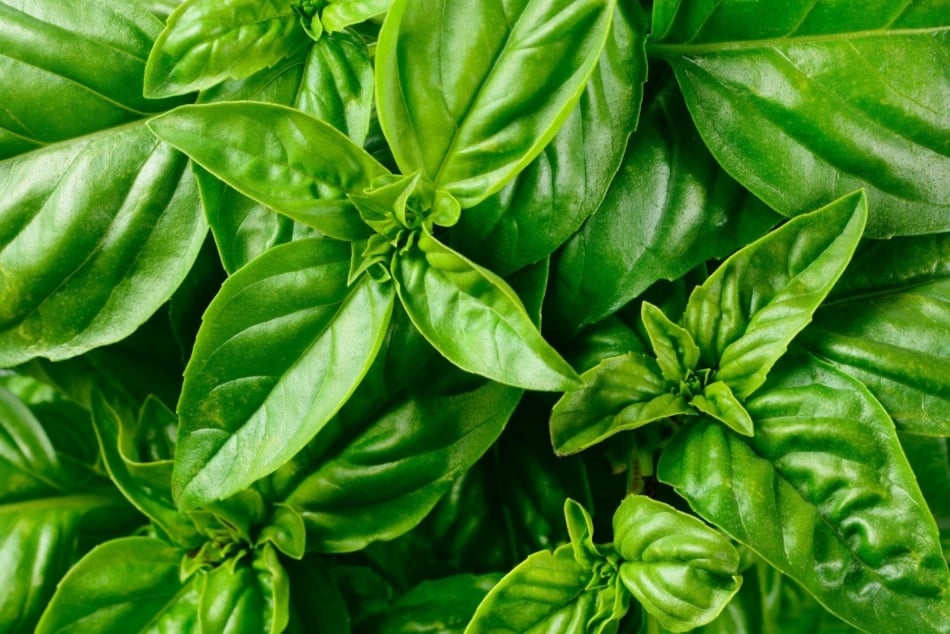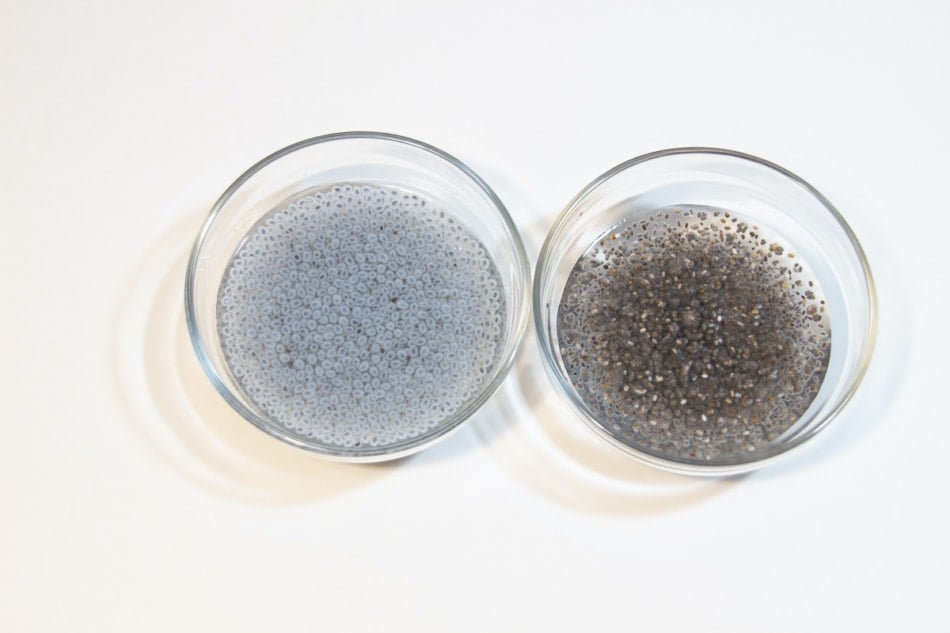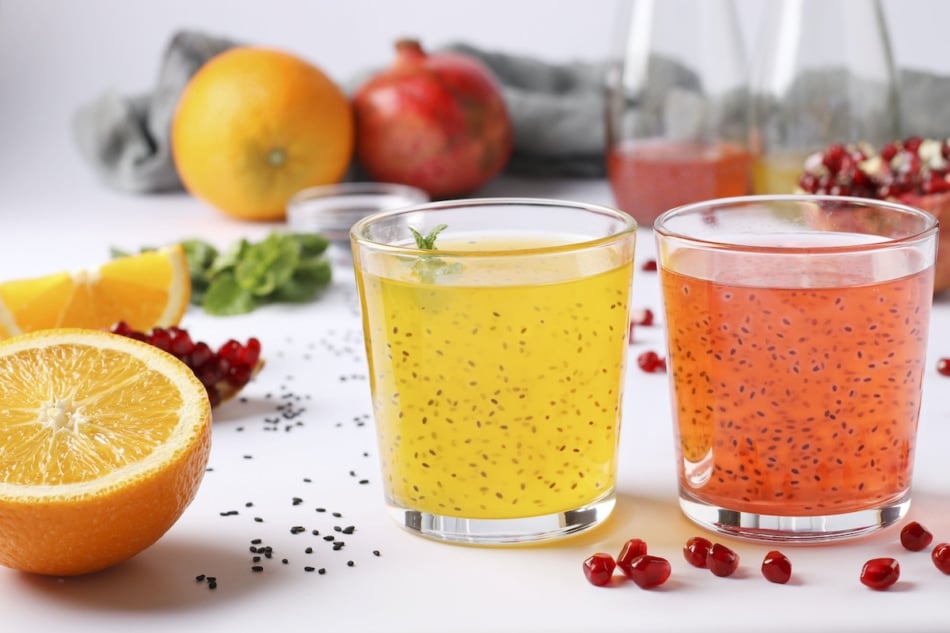Basil Seeds: A New Superfood?
Think basil is just for pesto? Think again! Sweet basil seeds are so nutritious, they're giving chia seeds a run for their money. Check out this list of health benefits!

You might be surprised to learn that basil seeds are not just for the garden!
What the Heck Are Basil Seeds?
Sweet basil, Ocimum basilicum, is one of the world’s most beloved herbs, growing in gardens the world over. But you may be surprised to learn that their seeds are coming off of the potting bench and into the pantry because they can be used in a number of ways. This is causing fans of chia seeds to sit up and take notice.

Basil seeds are black in color and look similar to chia seeds, but are slightly larger with a teardrop shape. And like chia seeds, they turn to gel when you add water (although they swell faster and larger) so they can be used in recipes like puddings, milkshakes, and smoothies as a thickening agent. In fact, in order to consume the seeds, they have to be soaked in water first, as they’re too tough to eat on their own.

While the use of sweet basil seeds, also known as sabja seeds or tukmaria seeds, might be new to you, they’ve been used for culinary purposes in Southeast Asian countries for centuries, especially in sweet desserts. In fact, these seeds are commonly used in drinks to combat the hot climate because they are known to have a cooling effect on the body.
Health Benefits of Basil Seeds

The best part about these seeds is that they are loaded with health benefits. Their dietary fiber, minerals, protein, phytochemicals, omega-3 fatty acids, and other powerful antioxidants are known to help ease a number of common ailments. All you need is 2 teaspoons in your diet daily to reap their amazing properties. Below are just some of the many health benefits they’re known for:
- Improves digestive health – the seeds are a great source of fiber so they’re especially helpful if you suffer from constipation.
- Helps with weight loss efforts – the gel-like substance created by these seeds slows down digestion, helping you to feel fuller longer.
- Promotes glowing skin – eating the seeds regularly helps your body secrete collagen, essential for your skin to form new cells. Their antioxidant properties also benefit skin.
- Strengthens hair and prevents premature hair loss – because the seeds contain protein, vitamin K, and iron, they help keep hair healthy.
- Lowers blood sugar – a study of people with type 2 diabetes who consumed 3/4 tablespoon of basil seeds in water after each meal for a month showed a 17% reduction in blood sugar.
- Relieves stress – a glass of water with basil seeds was shown to lower anxiety in several studies.
- Reduces inflammation – basil seeds are loaded with plant compounds that help decrease inflammation.
- Provides pain relief – A study published in the Journal of Bone Research and Reports shows that beta-caryophyllene (a compound present in basil seeds) has anti-arthritic properties because it blocks the release of pro-inflammatory compounds. This is also helpful for people who suffer from headaches and IBS.
- Boosts bone health because the seeds are loaded with minerals, including iron, potassium, copper, calcium, manganese, and magnesium
How To Use Basil Seeds
Soak the seeds in water for about 15 minutes until they swell to twice their size, then add them to recipes. Two teaspoons of seeds in 1/2 cup water are considered a serving. You’ll find basil seeds swell faster and become larger than chia seeds.
Precautions
People on blood-pressure-lowering drugs or diabetes drugs should double-check with their doctors before starting any basil supplements as they may lower blood pressure and blood sugar.
Where To Buy Basil Seeds
Packages of basil seeds, or sabja seeds, are similar in price to chia seeds and can be found online or in most health food stores. We recommend high-quality, organic seeds such as those available at Zen Basil.
Recipes

Check out these yummy recipes that use basil seeds:
- Simple Basil Seed Lemonade – from FlavoursTreat.com
- Falooda Indian Dessert – from theDelciousCrescent.com
- Basil Seed Chocolate Pudding – from ZenBasil.com
This article was published by the Staff at FarmersAlmanac.com. Any questions? Contact us at questions@farmersalmananac.com.







Thanks for the interesting article. I have rarely used basil, but do have some dried leaves in my dried herb supply. I have a number of health issues that this herb can help with, so I will be using it on a regular basis going forward. I’ll probably start by breaking up individual leaves to put in cold or warm tea, and drinking it down without filtering out the pieces. I don’t think it’s a good idea to put it in hot or boiling water or tea tho, as the high heat may destroy the beneficial biochemicals in the leaves.
I am always interested in learning about natural health benefits in plants, as non-natural, chemical-based drug therapies tend to have harmful side effects, which, in my opinion, cancel out the benefits of taking them. I already take a lot of natural supplements, which have helped me some with my health issues. I also eat somewhat healthier than I used to, which has also helped me. I am looking forward to seeing the effects of using basil on a more frequent basis going forward.
Thanks again for the helpful article.
I have a large basil plant that has gone to seed. Can I collect the seeds? How? Do they need to be dried or any other process to make them usable?
Hi Carol, here’s a good video on how to harvest the basil seeds from your plant.